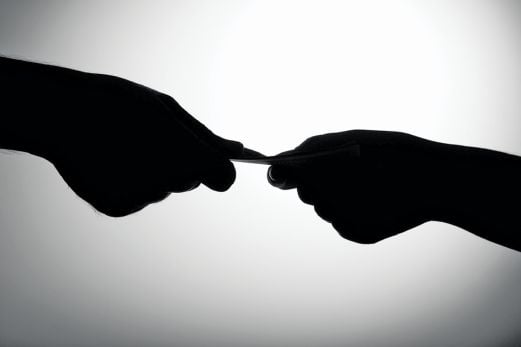
IT is a spectacle that you will never find at the headquarters of the Malaysian Anti-Corruption Commission (MACC) at Putrajaya: Scores of reporters on the steps of Komisi Pemberantasan Korupsi.
They are there at all times, waiting for news, tips, reports or to snap pictures of orang tersangka (suspects). When members of the MACC’s Consultation and Prevention Panel (PPPR) were there, we saw a suspect being taken to the headquarters, and many hours later, taken back to the remand centre. He wore a vest that read Tahanan KPK (literally a KPK prisoner).
The Corruption Eradication Commission, better known by its Indonesian acronym KPK, is a force to be reckoned with. It reinvented itself after years of official tolerance on graft during the New Era. One of the most significant changes to Indonesia after the Reformasi was the new power for KPK demanded by the people. The new KPK was born out of that, especially by the political will of the man at the helm, former president Susilo Bambang Yudhoyono (SBY).
The born-again KPK is a tiger with claws and teeth.
Newly-elected President Joko Widodo, or Jokowi, has pledged to ensure a clean cabinet and government and giving a free hand to KPK. He sought KPK’s help to vet potential cabinet appointments, and recently, candidates for the post of Attorney-General. With the mandate to investigate and to prosecute, KPK is a corruption agency one does not want to mess with.
My panel was told of the three strategies adopted by KPK of late: To uphold legal supremacy, creating deterrence and shock therapy, and to recover stolen money and assets of the corrupt.
It has slightly more than 1,000 staff to combat corruption in the fourth populous nation in the world. And more so, one that is perceived as facing chronic corruption problems and negative on the international corruption perception index.
But things are changing, thanks to the ferocity of the man at the helm, Abraham Samad, whose reputation as a graft buster is a stuff of legend. He is seen as the graft exterminator extraordinaire, going after the sharks as well as ikan bilis (small fries).
Last year, they investigated a total of 81 cases involving ministers, judges, civil servants, corporate chiefs and others. At least 59 of those cases were regarded as “high-profile.”
Yet, KPK has its detractors. There are those who believe that many of the high-profile cases are merely publicity stunts for the public. There is talk that KPK chooses to deny the rights of suspects in favour of the media blitz. And as the case of reporters at its doorsteps, to keep KPK “alive” and in the public sphere at all times.
KPK realises that the war is not easy to win. Giri Supradiono, the director of gratification, admits that corruptors are fighting back by trying to weaken the provisions in certain laws. He realises that the slow pace of bureaucratic and judicial reforms is affecting KPK’s effectiveness.
He believes the people can make the difference. As manifested by the fund created by common people to build a headquarters for KPK, people are by and large with them.
The campaign Koin untuk KPK (coin for KPK) collected about RM132,000, hardly enough to erect a flyover in the heart of Jakarta not to mention erecting a building. But the symbolism matters.
Giri believes non-governmental organisations play a critical role to help KPK. Indonesia Corruption Watch (ICW) is one, run by mostly young, idealistic volunteers trying to clean Indonesia of the scourge.
Ade Irawan, 37, its coordinator, is a portrait of diligence and determination, leading ICW as one of the region’s most respected NGOs on corruption monitoring. Do not be misled by his boyish look, he fears no one but is feared by all.
Campaigns like berani jujur hebat (dare to be honest is good), anti-corruption festival and integrity movie festivals are meant to create awareness, especially among the young. ICW believes that they are not replicating KPK’s work, in fact, they are complementing each other.
Members of the PPPR panel believe that there are areas that we can learn from both KPK and ICW. Besides our curiosity about the presence of reporters at all times on the steps of KPK headquarters, we were also struck by the tagline adopted by the commission: Bangun negeri tanpa korupsi (building a nation without corruption).
In developing countries, that should be the crusade against corruption.
Twitter@Johan_Jaaffar